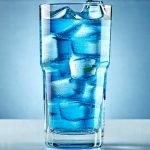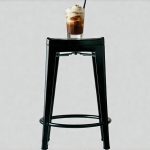Carbonated beverages – from fizzy sodas and sparkling waters to bubbly fruit juices – are deeply ingrained in many cultures as refreshing and enjoyable drinks. However, for a significant portion of the population, these same beverages can trigger uncomfortable digestive upset, ranging from mild bloating and gas to more pronounced symptoms like abdominal pain and heartburn. Understanding why this happens requires delving into the complex interplay between our digestive system, the physical properties of carbonation, and individual sensitivities. It’s not simply a case of “some people can handle it, others can’t,” but rather a multifaceted issue involving physiological responses, dietary habits, and underlying conditions that may increase vulnerability to these effects.
The sensation of bubbles is often equated with refreshment, leading many to unknowingly consume carbonated drinks even when experiencing early signs of digestive distress. This is partly due to learned associations – we’ve been conditioned to associate fizz with pleasant experiences – and partly because the initial feeling can be momentarily distracting from underlying discomfort. The problem arises as the carbonation continues its journey through the digestive tract, potentially exacerbating existing issues or creating new ones. It’s important to note that this isn’t necessarily a sign of illness; it’s often a normal physiological response to a specific type of beverage, although persistent or severe symptoms should always prompt consultation with a healthcare professional.
The Mechanics of Carbonation and Digestive Impact
Carbonation, at its core, is the process of dissolving carbon dioxide gas into a liquid. When you open a carbonated beverage, the dissolved CO2 is released, creating those familiar bubbles. This release doesn’t just happen in your mouth; it continues throughout the digestive system. As the liquid travels from the stomach to the small intestine, the expanding gas creates pressure and distension. – For individuals with sensitive digestive systems or pre-existing conditions like irritable bowel syndrome (IBS), this increased pressure can be particularly problematic. The rapid expansion of gas in a confined space – your stomach or intestines – can lead to feelings of bloating, fullness, and even cramping. – The amount of carbonation varies significantly between different beverages; some are lightly effervescent while others are intensely bubbly, directly impacting the extent of digestive impact.
This pressure isn’t solely about physical distension though. Carbonated beverages often trigger a gastrocolic reflex, a natural physiological response where eating or drinking stimulates movement in the colon. The increased gas from carbonation can amplify this reflex, potentially leading to more rapid intestinal contractions and subsequent bloating, gas production, and even diarrhea in susceptible individuals. The speed at which you consume a carbonated beverage also plays a role; gulping down large amounts quickly increases the rate of gas introduction into the digestive system, intensifying these effects compared to sipping slowly.
Finally, it’s important to remember that many carbonated beverages are acidic. While acidity itself isn’t always problematic, in individuals prone to acid reflux or heartburn, the combination of increased stomach pressure from carbonation and the acidic nature of the drink can significantly worsen symptoms. This is because the expanding gas can relax the lower esophageal sphincter (LES), allowing stomach acid to flow back into the esophagus. – Why warm foods may be easier on the digestive system could offer some relief during these times.
Bloating and Gas Production
Bloating isn’t just about visible abdominal swelling; it’s a feeling of uncomfortable fullness and tightness. Carbonated beverages contribute to bloating in several ways. Firstly, the increased volume from the gas itself physically stretches the stomach and intestines. Secondly, as mentioned earlier, the amplified gastrocolic reflex can accelerate intestinal motility, leading to more fermentation and gas production by gut bacteria. – Different people have different levels of tolerance for gas; some individuals are naturally more sensitive to even small amounts of intestinal gas, while others may barely notice it. This sensitivity is partially determined by individual visceral hypersensitivity — an increased perception of pain or discomfort from internal organs.
The type of food consumed alongside carbonated beverages also impacts bloating. Combining fizzy drinks with foods known to cause gas (like beans, broccoli, or onions) can exacerbate the problem. Furthermore, swallowing air while drinking – a common occurrence when consuming carbonated beverages quickly – adds to the overall gas load in the digestive system. – Techniques like sipping slowly and avoiding talking while drinking can help minimize air ingestion.
Acid Reflux and Heartburn
Acid reflux occurs when stomach acid flows back up into the esophagus, causing heartburn—a burning sensation in the chest. Carbonated beverages can worsen both conditions due to their inherent properties. As previously noted, the expanding gas from carbonation can relax the lower esophageal sphincter (LES), which normally prevents acid from escaping the stomach. – This relaxation allows acidic stomach contents to travel upwards, irritating the esophageal lining and triggering heartburn symptoms.
The acidity of many carbonated beverages themselves contributes to the problem. Even if the LES remains relatively tight, a highly acidic drink can still irritate the esophagus on its own. – Citrus-flavored sodas or those containing phosphoric acid are particularly likely to trigger reflux in sensitive individuals. Some studies have suggested that even seemingly innocuous sparkling water can worsen heartburn symptoms in certain people due to its acidity.
Irritable Bowel Syndrome (IBS) and Carbonation
Irritable bowel syndrome (IBS) is a chronic gastrointestinal disorder characterized by abdominal pain, bloating, gas, diarrhea, and constipation – often occurring in varying combinations. For individuals with IBS, carbonated beverages can be significant triggers for symptoms. The increased pressure and distension caused by the bubbles can exacerbate visceral hypersensitivity, amplifying the perception of pain and discomfort. – This is particularly true for those with IBS-D (diarrhea-predominant) or IBS-C (constipation-predominant), as carbonation can either speed up or slow down intestinal motility, respectively.
The fermentation caused by carbonated drinks can also contribute to bloating and gas production in people with IBS. The gut microbiome of individuals with IBS is often imbalanced, leading to increased sensitivity to fermentable carbohydrates – including those found in sugary sodas and even some sparkling waters. – Reducing or eliminating carbonated beverages from the diet can be a crucial step in managing IBS symptoms for many sufferers. It’s important to identify personal trigger foods through careful monitoring and potentially with guidance from a registered dietitian. Why spices trigger digestive upset is also relevant, as spice combinations can exacerbate IBS symptoms.
It’s essential to remember that digestive health is highly individual. What triggers upset in one person may not affect another. Paying attention to your body’s signals, identifying potential triggers, and making informed choices about beverage consumption are key to minimizing discomfort and maintaining a healthy gut. If persistent or severe digestive issues arise, seeking professional medical advice is always recommended. – Understanding why carbonated water may worsen acid reflux can help you make better decisions too.


















